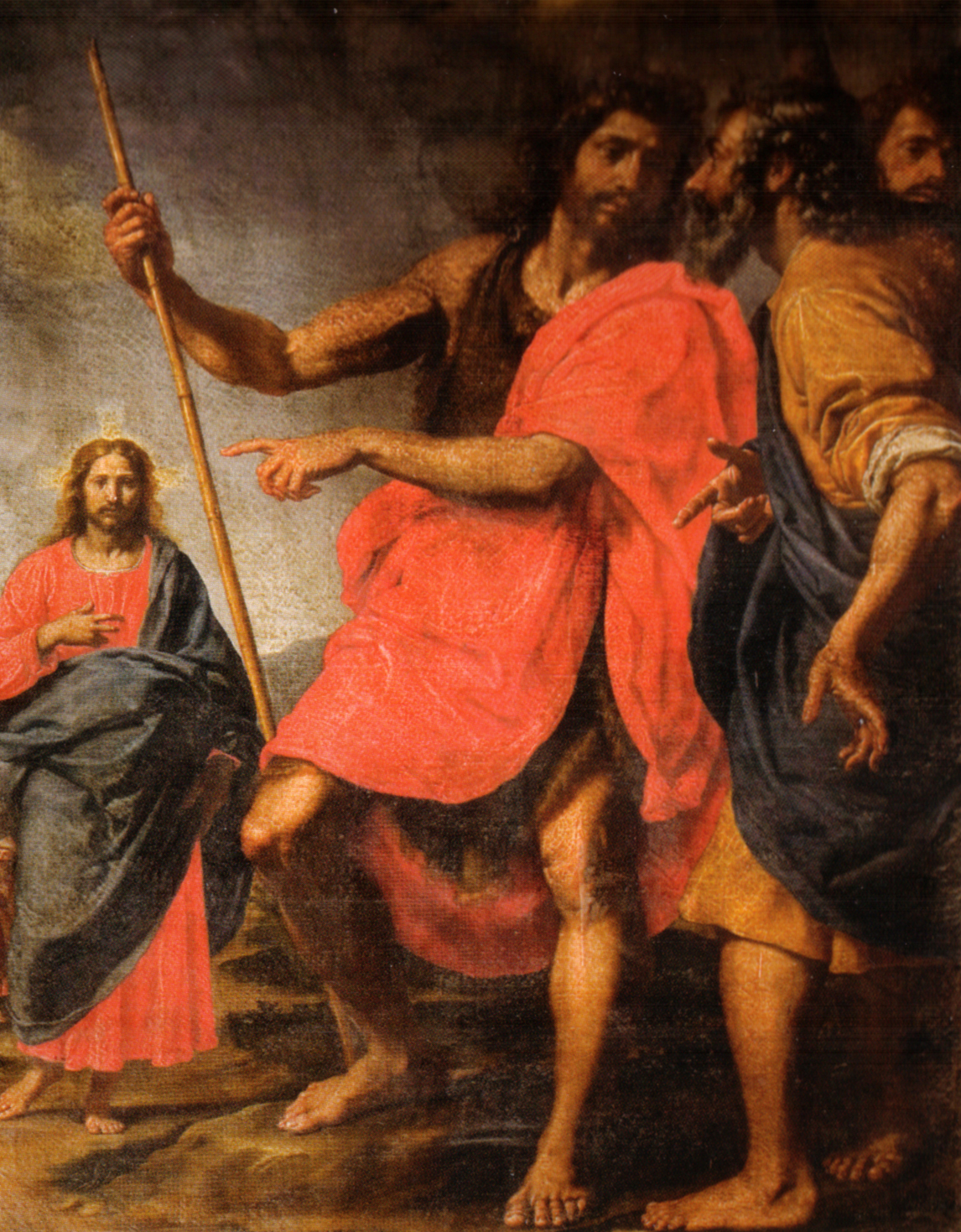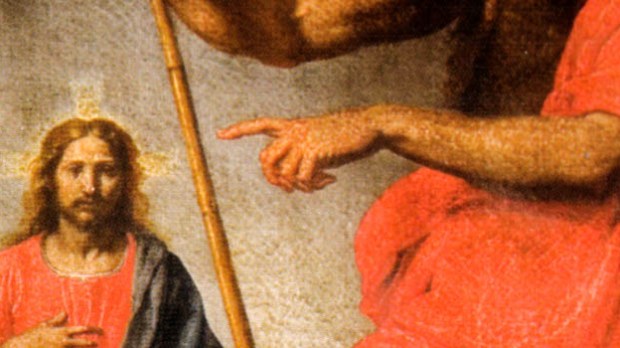The next day John again was standing with two of his disciples, and as he watched Jesus walk by, he exclaimed ‘Look, here is the lamb of God!’ (John 1: 35)
These words are rendered breath through Ottavio Vannini’s painting, “The Pointer,” a work of art that decorates the Church of San Gaetano in Florence.
While in the Synoptic Gospels Jesus calls his disciples while they were fishing by the sea of Galilee, here in the Gospel of John, the disciples themselves follow Christ through the witness of the Baptist.
Garbed in camel’s hair, John stands in contrapposto with most of his weight on one foot, resting onto a rock. Both the camel’s hair and the rock symbolize temperance, endurance and rejection of worldly affairs. His red cloak announces his imminent martyrdom and his holy zeal for the Lord.
Intriguing indeed are his gestures. In his right hand he clutches a bamboo reed indicating his simplicity and humility. While with his left hand, he points out to the Lamb of God. Now this expression bears striking resemblance to the “Hand of God” in Michelangelo’s Sistine Chapel fresco of the Creation of Adam. The action absorbs the significance as well. It highlights the transfer of attention and the literal transfer of apostles from John the Baptist to Jesus. John announces not himself but Christ. It also presents Jesus as the new Adam.

The declaration of the Lamb of God recalls the Paschal lamb whose blood saved the Israelites from death and paved the way for their deliverance from Egypt (Exodus 12). It also bears witness to the ram provided by God to Abraham in lieu of the sacrifice of his son Isaac. Finally, it brings to mind the Suffering Songs of Isaiah who prophesied the Sacrifice of Jesus and the salvation of human race.
Heeding John’s voice and direction is St. Andrew and an anonymous disciple. Greyed, unkempt yet eager and accepting, St. Andrew prods forward towards the ‘Rabbi.’ His gestures display openness as he beholds the Messiah with eyes of faith. Eventually his faith leads to action as he brings his brother Peter to Christ (verse 41). His chrome colored robe marks his constancy and wisdom.
The Lamb of this painting, as recognized by the attributes, is Jesus himself. While his red cloak connotes his humanity, the blue mantle signifies his divinity. His right hand is poised onto his chest with the three open fingers revealing the mystery of the Trinity. The two closed fingers exemplify his dual nature as God and man. The triple radiant halo is a constant reminder of Christ as the second person of the Holy Trinity.
The liturgical beauty of the painting is John’s faithfulness to his mission. The decrease in the number of his followers heralds his success and not his failure. For John the Baptist was a man who lived by the saying, “He must increase, but I must decrease.” It is this message that the painter attempts to deliver to the audience. The audience is represented in the painting through the anonymous disciple whose face is turned towards us. As he embodies us, he invites us, through John’s testimony, to encounter God and follow Him.
Joynel Fernandes is the Assistant Director of the Archdiocesan Heritage Museum, Mumbai, India. She is currently pursuing her Masters in History. Researching on Church History and Church art is her passion. She hopes to make its understanding more approachable to younger generations.
This article has been kindly granted to Aleteia by our partners in India, Indian Catholic Matters. We encourage you to visit their full website, here.

